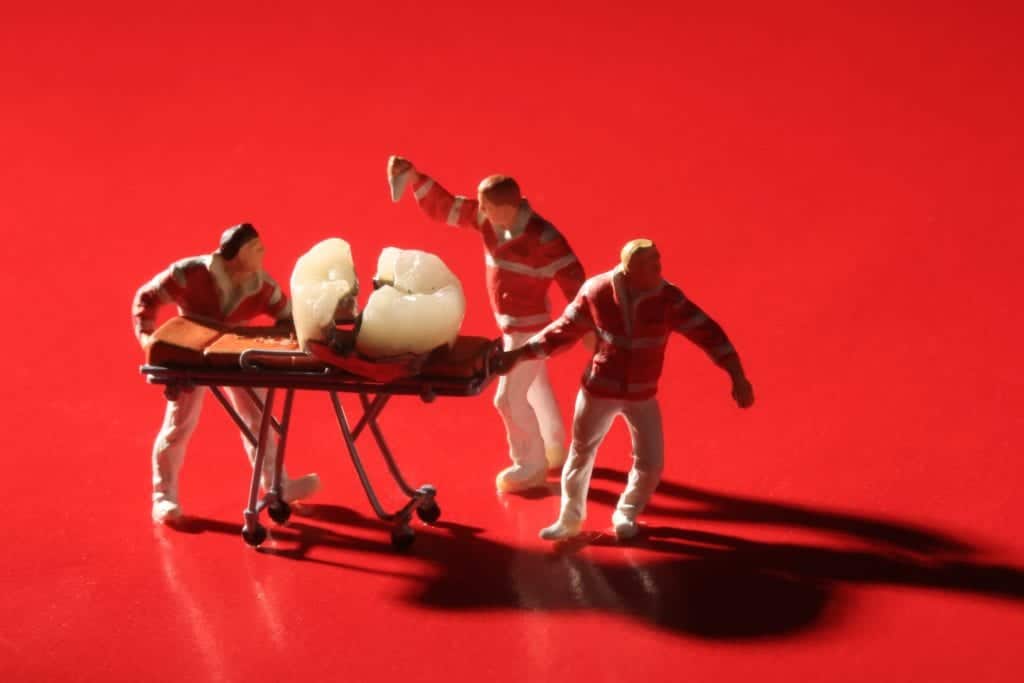Everyone knows what an emergency room is. But, did you know that there is an emergency room for your teeth? And no, it’s not the same emergency room you would visit if you broke your arm. Rather the emergency room for your teeth is simply your local dentist’s office.

While you may think that visiting a medical emergency room is the right choice for a dental emergency, it is actually better to call your dentist. In fact, many emergency rooms end up referring dental emergencies to local dental offices for care. So if you’re having a dental emergency, how do you know whether to visit the emergency room or your dentist?
To answer that, we need to understand emergency dentistry. Emergency dentistry is the prompt and effective treatment of a condition that requires immediate treatment. Emergency dentistry is needed in cases where the condition presents a severe threat to one’s oral health. Some conditions that require emergency dentistry can include:
- Chipped or cracked teeth
- Knocked out teeth
- Loose permanent tooth
- Severe and sudden tooth pain
- Inability to open or close the mouth
- Loss of a dental restoration
However, this list only represents the most common dental emergencies. There may be other conditions that also warrant emergency dental care, so if you are unsure it is important to call your dentist’s office for clarification.

Emergency dental procedures will be performed in your dentist’s office by your dentist. As part of their training, dentists are required to study emergency dentistry and are well-equipped to handle various types of dental emergencies. Their offices also contain the necessary supplies. Unfortunately, medical emergencies generally lack both dental expertise and necessary dental supplies.
When undergoing an emergency dental procedure, you may need to be sedated and will most likely be anesthetized. The level of sedation will depend upon the extent of the dental emergency and the type of treatment it requires. For example, a chipped tooth may not require any sedation if composite bonding is used, however a broken dental implant may require a minor surgery and sedation would be used.
While dental offices are well-equipped to perform emergency dentistry, there may be a few instances where a medical emergency room may be recommended. One such case is if there is significant soft tissue damage that requires stitches. Another case would be if you believe you are dealing with a broken or dislocated jaw. However, it is still recommended to call your dentist to determine whether to go to the emergency room or the dental office.
As you can see, emergency dentistry is an important part of dentistry that you may not have ever thought about. When most people think of emergencies, they think of going to a medical emergency room. However, emergency dentistry is best performed in a dental office by your local dentist.

Dr. Dennis Laurich has been practicing dentistry for over 40 years. He received his DDS degree from the University of Michigan Dental School and regularly attends oral health care conventions to continue his dental education. This allows him to treat patients with the leading dental technology and methodologies. Additionally, he is a member of the American Dental Association, Michigan Dental Association, and the Detroit District Dental Society.
Dr. Dale Flanagin II is a distinguished professional in the field of dentistry, holding a Bachelor’s degree in Molecular Biology and Biotechnology as well as a Doctor of Dental Surgery degree. He is committed to improving the lives of others through his work, driven by a lifelong passion for helping people.





